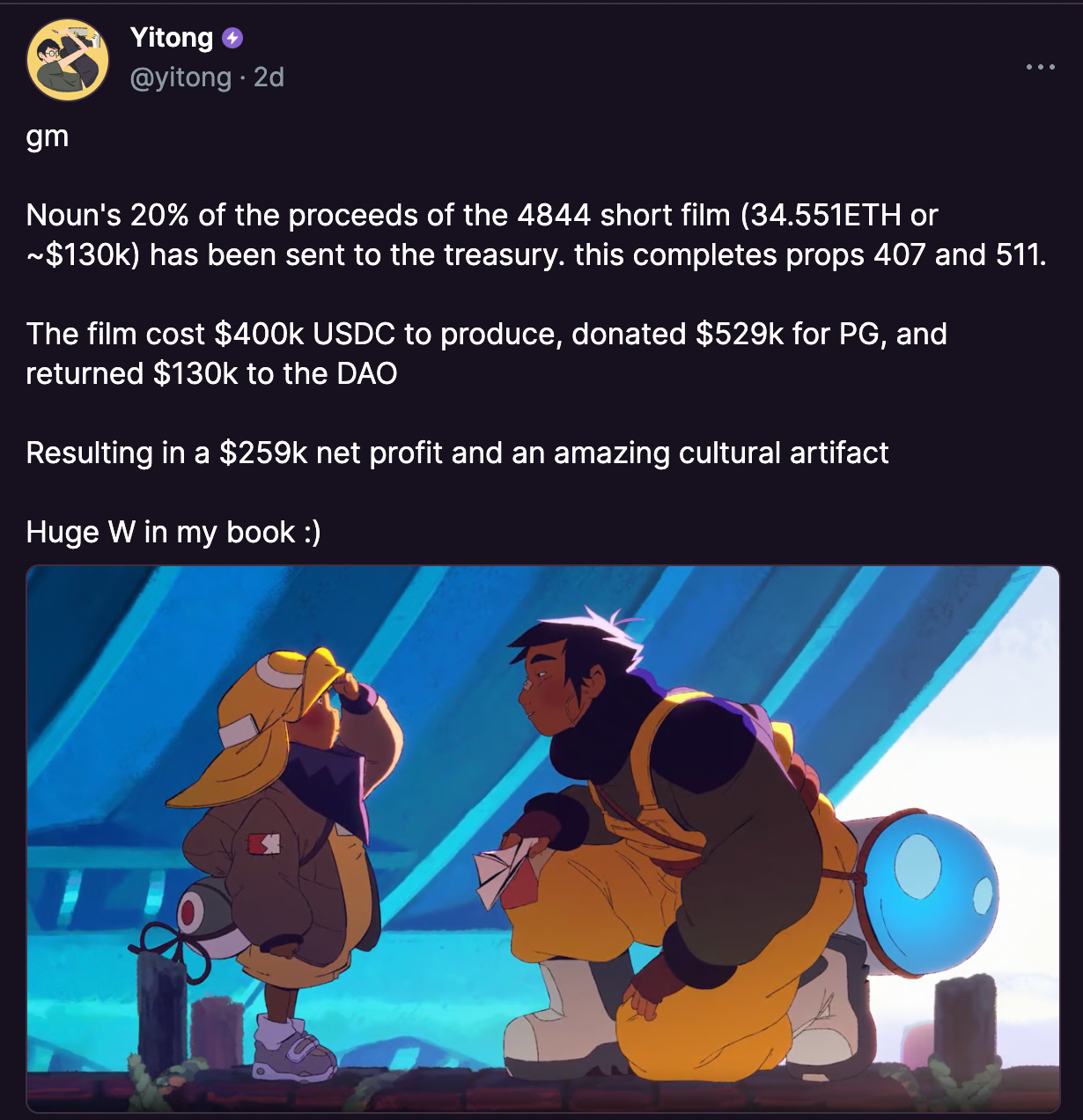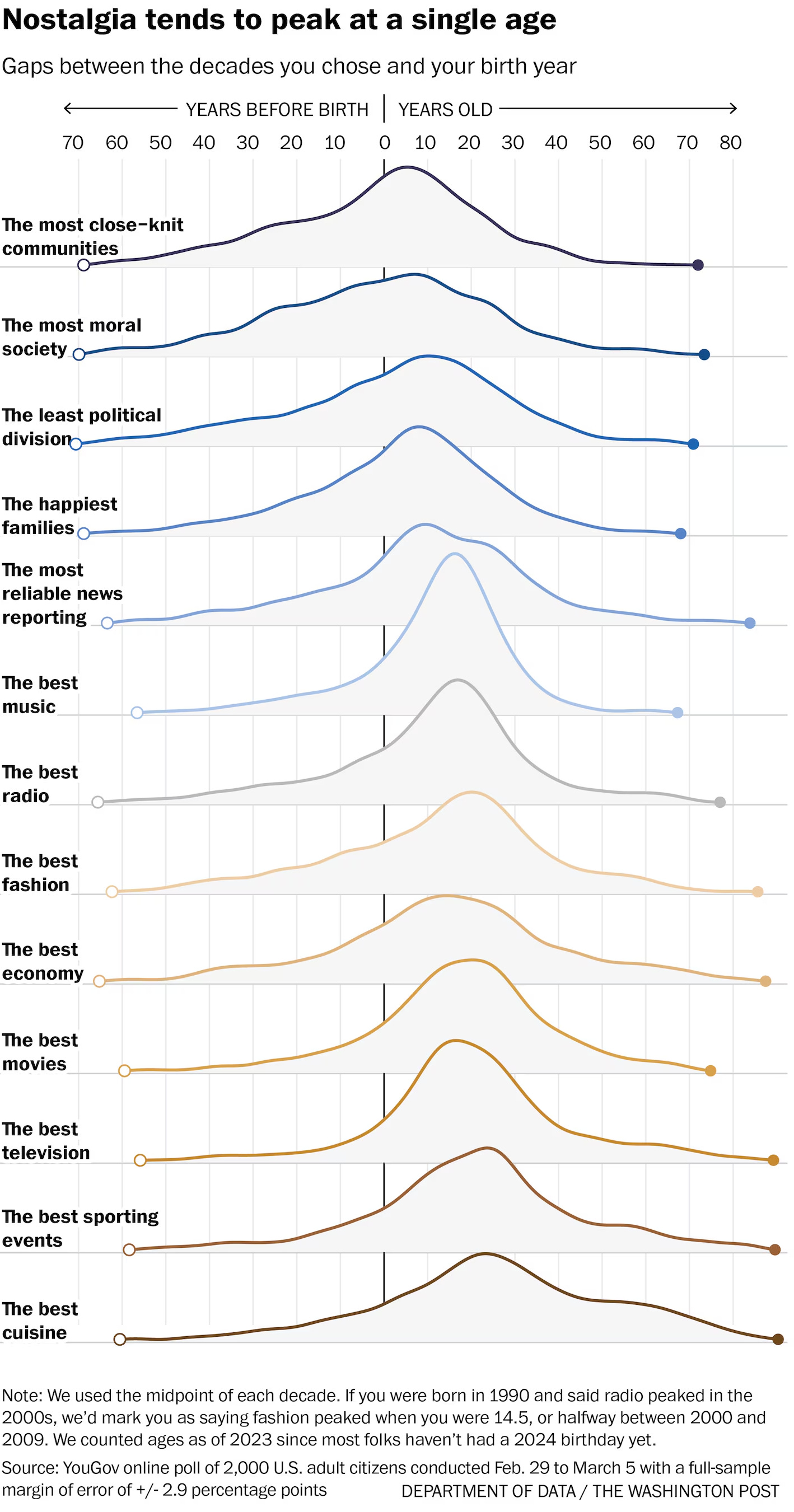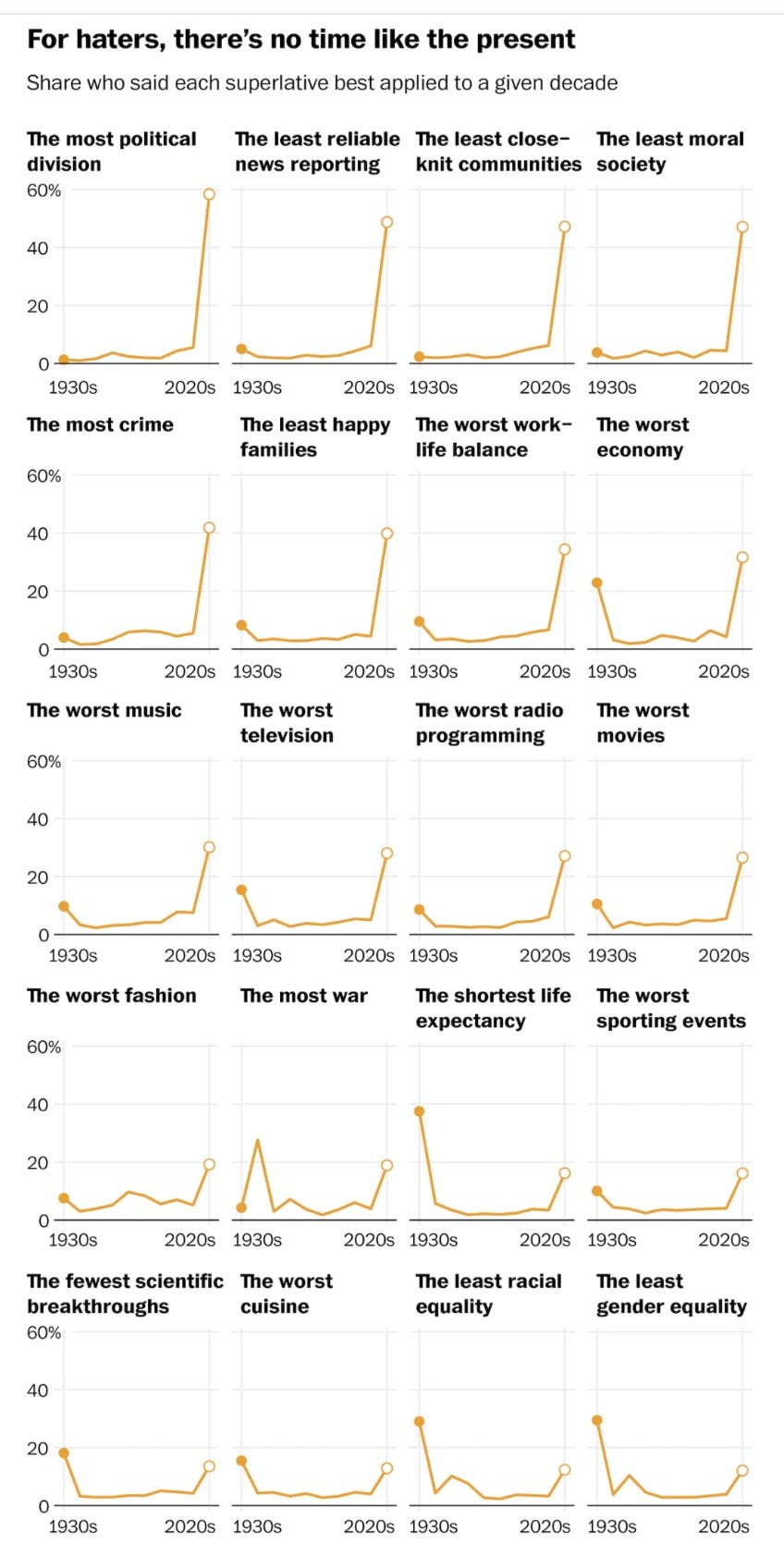Checkpoints & Savepoints
Also: Dynamic Supply Tokens, Nostalgia Peaking, and Creed Is Cool Again
Something I fondly remember from Diablo 2 is the Horadric scholar, Deckard Cain, welcoming you back from an adventure.
Whether it’s the fantasy town you travel back to, a checkpoint or a savepoint, they are all a point to “stay awhile” and reflect. Since I started actively running, something that one becomes more acutely aware of is having to do active recovery. Rest is as important. A common tactic is to do 3 weeks on and then one week off (“deloading”). In writing each week, I’ve been wondering whether this is something I want to bring into my writing practice. I also think there’s value in retreading ground and treating one’s writing more like a garden. I did a recap at the end of last year, which seems to fit into a yearly look-back schedule, but I wonder if it makes sense to do it more often. For now, it’s the middle of the year, and I thought I’d use today’s newsletter as a mid-year checkpoint, but also to re-introduce myself and why I write.
It’s because I imported my old newsletter into this one this week. After 73 newsletters for the past 73 weeks on the many things I enjoy, I realised it didn’t make sense anymore to have two. The original was for slower announcements of new work and articles. But now that I’m mostly writing essays and articles here and that I’m likely going to continue writing weekly, it made sense to combine it.
So, hi (again). I started this newsletter because I wanted to:
Write more. And practice to write more.
Build up a place for distribution outside of existing social media and produce content in slower and more methodical ways (vs just posting directly on platforms).
See what else might emerge from this experiment.
In some ways, this newsletter is a home for me, to force me to take half-baked ideas and finish them. Last week’s newsletter is one such example, writing on story length and stakes.
If this newsletter didn’t exist I wouldn’t have given the problem much more time. So, I write to see things to fruition.
But, writing still takes places among *gesturing* everything else. I still spend a day a week writing at cost of whatever else I could be doing (like actually working on my novel). So, there’s more to it, and that is a constant negotiation in itself. I’ve sometimes wondered if I’m just stubborn for no good reason and that perhaps I enjoy the discipline of it. That, maybe, in a world of current chaos and complexity, I find this writing practice a place where I can cozy up with a fire and talk to Deckard Cain. That’s also maybe why I’ve started running so much.
Part of why I enjoy running is that it feels substantially simpler than what I normally engage with in the rest of my life. With running, for the most part, what you put in, you will get out. Yes, there are things that are complicated, like fixing poor running form, wearing the wrong shoes, understanding nutrition and hydration for long runs, but generally: the more you run, the body will joyfully respond in turn. If you do too much of it too quickly, your body will also tell you to slow down.
It’s the opposite to my primary world - creativity - where what you put in does not always give you commensurate returns. You can spend years deeply invested in a project, believing it your best work, only to have it flop and not resonate with a wider audience. You can also produce something over the weekend, publish it, and have it unexpectedly go viral. There’s a certain inherent complexity to creativity that makes it unpredictable. It’s a part of its allure and its struggle.
To write each week has a creative element, but it’s like running in that, if you put your hands on your keyboards more regularly, you’re just simply able to do more of it. Doesn’t mean it will be good. But, it’s something to come back to. Regardless, you’re making progress.
But, I’m not going to avoid the reality that I also write because I want to build a wider audience for my writing (and the benefits that come from it). Not because I want to build a legacy, but mostly because I want to attune myself more to my present and the experiences I’m having.
In Esquire, Kate Dwyer, writes about the struggles that debut authors are facing. If you’re a creative in this era, it sounds familiar.
But unlike in the late fifties, when there were only a handful of venues for reaching the public—national magazines with hundreds of thousands of subscribers, a few television channels—today’s overstuffed, under-resourced media landscape means that book coverage is more fractured and reaches fewer readers. These days, an unknown author’s chances of success hinge on cobbling together an audience through aggregate.
And so, I write, because I want to write more. With it comes the building of a community, something that Kate points to in conclusion.
“The process of writing is often a solitary process, and it can feel very isolating,” says Nicole Counts, the executive editor who organized the retreat and secured funding from the Hawthornden Foundation. For authors, she adds, community can be a grounding force, and those who feel unmoored might end up quitting the industry altogether. “When you have community,” Counts says, “you have a way forward through the ups and downs.”
So far, this has happened. I read newsletters fervently each week. Newsletters like Summer Lightning, Counter Craft, Ribbonfarm, Intrinsic Perspective, Our Long Walk, Escaping Flatland, Jay Springett, Andres Guadamuz, Axes & Axioms, Li’s Newsletter, Notes From a Small Press, The Discourse Lounge, and Publishing Confidential. All on various topics I’m interested. Writing, protocols, technology, economics, urbanism, publishing, and general nerdery. People I learn from frequently, and some people whom I’m fortunate to call friends. So even if this newsletter would sunset one day, I’ll leave all the more richer for it in terms of what I’ve learned and people I’ve met.
That being said. There is still that tension of realising that this is still ultimately a personal pursuit that doesn’t really fit a mould that one might expect. Can I do more to build an audience? Yes. Do I want to? No, not always. I’m not a Cory Doctorow that is able take one blog post and syndicate it on every social platform. It feels like I’m then smoking more of the algorithm I’m trying to kick the habit of.
The inverse of *only* writing to maximise distribution is to write in a way that as Lincoln Michel says: to be unnecessary.
Yet I would like to humbly suggest this thinking is entirely wrong. The unnecessary is most necessary part of art. Art is exactly the place to let your eye linger on what fascinates it. Art isn’t an SEO optimized app or a rubric for overworked teachers to grade five-paragraph essays. Art is exactly the space—perhaps the last space left—where we can indulge, explore, and expand ourselves. If we can’t be weird, extraneous, over-the-top, discursive, and hedonistic in our art, where can we be?
Jay talks about this tension in a recent article.
I’m not sure tensions between audience, schedule and can be resolved. It’s going to require both artistic experimentation, and audience participation. But now is as good a time as any to try something new. The web is in turmoil, filling up with AI slop, so real things from real people are going to need to signal their humanity. There’s lots of potential over the next few years to re-draw the maps between people and platforms.
And similarly, Henrik talks about his own writing practice.
As the blog enters its fourth year, this is what is on my mind. What is the deepest, truest direction I can take this experiment now? What is less important and can be sacrificed?
The conclusion is ultimately to write just however you want to write. The weirder and more singular, the better. The more I imagine the prospect of creating a place and space for my writing that looks like AI could generate it or it becoming a smooth-brained SEO factory just feels increasingly awful.
Is there more I want to do with this space? Yes. I’ve dreamed of creating a section where I more actively review and share what I enjoy. Art, books, cities, etc. More in-depth exposes and essays that take a few weeks to write. Or, more community focused efforts, like a book club. But, I can only really have one *big thing* I’m busy with. For now, that’s a new novel I’m working on. So, I do still code on the side and write this newsletter, but this book takes precedence. I literally have a long backlog of coding I want to do on project once I get a draft done and send it around to get queried. Which reminds me… I literally have an art project sitting finished since January that I haven’t launched yet. 😅
But, ultimately, this experiment - Scenes with Simon - for me, is to create all this writing such that when I return to it, it makes me feel like I’m coming back to my own Deckard Cain. A place to stay awhile and listen to my own thoughts and ideas about the world. And not in a narcissistic way, but to continuously negotiate my own perceptions of people, places, art, music, economics, urbanism, storytelling, and all the interesting scenes of the world. It’s like a map that is constantly being redrawn as the world changes.
So, adventurer, at this checkpoint, I present you a selection of some of my wares that I’m proud of. Feel free to pick one and go off on a tangent!
On NFTs
I wrote about the value of having digital cultural objects that keep their provenance and history with them over time:
On Urbanism
I adore how Barcelona has been changing their streets and wrote about it when I went to visit.
On Writing
On Crypto
On Economics
On Protocols
On Art
Thank you for reading. If you’re new here and you like what you see, please: stay awhile.
Bonus Content!
It’s been a super exciting week in South Africa as I’ve been watching the elections happen and the results stream in. I couldn’t sleep on Wednesday night here on the US East Coast as I was waiting for forecasts to come out. With the ANC dropping 57% to 40%, it’s truly a new era in South Africa. Looking forward to see how this will pan out in practice!
Novels In Unusual Forms
I often write about storytelling and often caveat that it’s just one of many ways to understand storytelling. Playing with form, structure, and narrative remains exciting. Lincoln has a new article up on novels with unique forms!
Nouns Delivery At Dawn
NounsDAO funded an animation short to highlight recent technical upgrades to Ethereum that allowed for more layer 2 stacks to interface with it.
This short was commissioned for $400k USDC. It was then free to watch, and sold as an NFT, raising money ($659k) for the developers working on the technology as well as returning a profit to NounsDAO.
It remains such an interesting experiment for me to reconsider how fundraising, production, distribution, and ultimately revenue can work. An example of a project that worked using this novel method of distribution. I wonder what this could look like if you expand this to $1m projects or even $5m projects. Does it scale equivalently? Let’s hope people try.
Nostalgia Peaking
And when does everything suck?
You’re most likely just biased by your age and your present. It’s an easy trap to avoid once you see it. There’s a lot of amazing things in the world. You just have to remain a young adult at heart. :)
Dynamic Supply Tokens
The Bonding Curve Research Group has a great article out on the defining primary and secondary automated market makers. I’m glad there’s continued research in this domain.
In contrast to fixed supply tokenomics, new technologies such as Primary Issuance Markets (PIMs) allow us to consider a new paradigm of token issuance: dynamic supply tokens. By using primary automated market makers for the continuous issuance and redemption of a native token based on the deposit or withdrawal of the reserve assets backing them, PIMs enable token ecosystems to adaptively expand or contract their available token supply based on the market demand for those tokens (or lack thereof). This approach benefits fundraising by providing perpetual revenue generation to a project treasury, dampening price volatility to retain more economic value during market downturns, and offering algorithmic liquidity as a market maker of last resort.
Creed - One Last Breath (Jojo House Mix)
I’m admittedly one of those people that started listening to Creed again because of the youth. I’m thus glad when this remix waltzed into my recommendations. Looks like a fun party!
That’s it for this week. Thanks for staying awhile and listening! Hope you get to see a lovely sunset. Till next week!
Simon






Wonderful reflection on this being a space where you can return to and engage with your ideas over time. This is helping me think about my own writing practice.